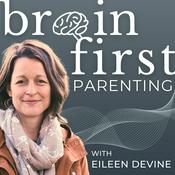SUMMARY - In this episode, Eileen explores the sibling experience in families where one child struggles with intense, challenging behaviors. Siblings are not passive observers. Their nervous systems are deeply impacted by the unpredictability, confusion, trauma, grief, and conflicting emotions that can arise in these dynamics. This conversation offers clarity around what siblings may be carrying, and sets the stage for Part 2, where we’ll discuss practical steps parents can take to support them.
TAKEAWAYS:
The sibling experience often mirrors the parents’ experience. The way we frame and respond to the struggling child shapes how siblings make sense of it all.
Supporting siblings requires a “both/and” approach: we can hold empathy for the child with behavioral symptoms without dismissing the sibling’s pain or experience.
Many siblings live with a pervasive sense of confusion, especially when behavior is not addressed in the moment or feels like a double standard.
Many siblings carry intense, conflicting emotions: love, resentment, guilt, protectiveness, and grief.
Some siblings cope by trying not to be a burden, becoming perfectionistic, overly independent, or parentified over time.
Living with scary or unpredictable behaviors can be traumatic, and recovery depends on protective factors that parents can strengthen.
Clarity is the first step toward meaningful support and Part 2 will focus on practical actions parents can take.
RESOURCES:
Brain First Parenting Podcast, Episode 22: Parental Grief (Recommended to revisit through the lens of the sibling experience, as many of the same themes apply)
=======================
If you appreciated this episode, and would like to receive a weekly note from Eileen about the Brain First Parenting journey every Monday, you can subscribe to her free newsletter HERE!
You can also check out all the FREE resources Eileen offers for parents, and learn more about all things Brain First at her website: eileendevine.com
And of course, find and follow Eileen on social media:
Facebook
Instagram
YouTube
Pinterest



